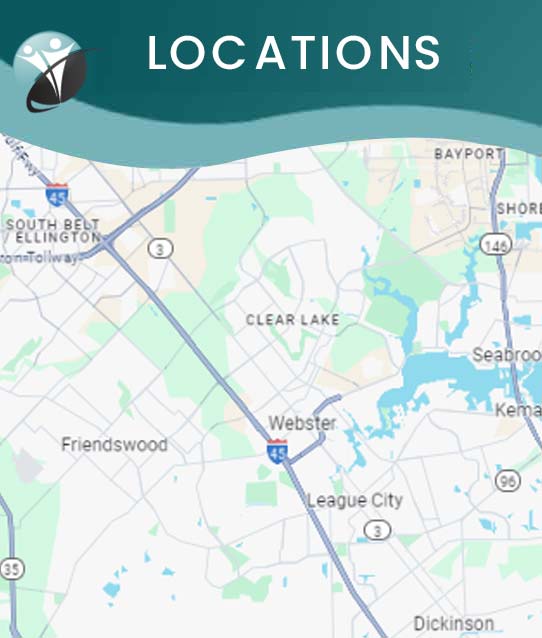Common Allergies in Adults in Webster TX: Identifying and Managing Triggers
An allergic reaction happens when the immune system mistakenly recognizes a harmless substance as a threat, leading to an immune response. Symptoms can vary from mild, such as sneezing or itching, to severe, including difficulty breathing or anaphylaxis. Common allergies include pollen, dust mites, pet dander, mold, and certain foods like peanuts or shellfish, as well as insect stings. Many things can trigger allergies in adults. Our specialists are experienced in treating and diagnosing allergy symptoms. For more information, please contact us or schedule an appointment online. We have convenient locations to serve you in Webster and Pasadena, TX.




Table of Contents:
What are the common allergies in adults?
What are the allergy symptoms?
How do I know what food I am allergic to?
How do I know my allergies?
Millions of people are prone to certain allergies in their lifetime, but, likely, many people do not realize that they have them. Although it is easy to think of allergies as a problem for people with sensitivities, anyone can have them. There are dozens of different allergy symptoms, including itchy skin, hives, swelling, and difficulty breathing. It can be difficult to diagnose allergies without the help of a medical professional, so it is imperative to visit an allergist when experiencing allergic symptoms.
Several allergies are common in adults, from airborne allergens to food allergies. The most common include:
• Pollen — One of the top allergens in the world is pollen, which is produced by trees, grasses, and flowers. In many regions, the revelatory yellow residue on the ground indicates that the pollen season is underway. When this occurs, allergy sufferers should initiate preventative measures, such as staying indoors on windy days, taking antihistamines as needed, and using a clean air filter inside.
• Dust Mites — One of the most common substances on the planet, dust can lead to a significant number of allergies. It is not dust alone that causes allergies, but the substances produced by dust mites that trigger reactions. The most common reactions are sneezing and a runny nose; these can be prevented by cleaning accumulations of dust.
• Food — Many adults suffer from food allergies. Foods that cause allergic reactions include tree nuts (such as walnuts, almonds, and cashews), milk, peanuts, soy, shellfish, and gluten. The allergies can be triggered by exposure to the food as part of a recipe or by consuming them whole (such as drinking a glass of milk).
• Medication — Certain medications, especially penicillin, can cause allergic reactions in adults. Penicillin remains one of the medications most likely to cause allergic reactions in patients, which can trigger anaphylaxis in some cases.
• Insect Bites and Stings — Bites and stings from insects, such as those from bees, wasps, and ants, can also trigger allergic reactions in adults. The reactions range from mild swelling to anaphylactic shock; serious cases require immediate medical attention.
• Pet Dander — Indoor pets such as cats and dogs occasionally, and unintentionally, trigger allergic reactions in adults. Pet hair and dander can trigger a host of allergic reactions, most commonly a runny nose, sneezing, and itchy, watery eyes.
Allergy symptoms depend on the substance involved and can affect the airways, sinuses and nasal passages, skin, and digestive system.
Hay fever (allergic rhinitis) can cause:
• Sneezing
• Itching of the nose, eyes, or mouth
• Runny, stuffy nose
• Watery, red, or swollen eyes (conjunctivitis)
A food allergy can cause:
• Tingling in the mouth
• Swelling of the lips, tongue, face, throat
• Hives
• Anaphylaxis
An insect sting allergy can cause:
• A large area of swelling at the sting site
• Itching or hives all over the body
• Cough
• Chest tightness
• Wheezing
• Shortness of breath
• Anaphylaxis
A drug allergy can cause:
• Hives
• Itchy skin
• Rash
• Facial swelling
• Wheezing
• Anaphylaxis
Atopic dermatitis can cause the skin to:
• Itch
• Redden
• Flake or peel
• Anaphylaxis
Signs and symptoms of anaphylaxis include:
• Loss of consciousness
• A drop in blood pressure
• Severe shortness of breath
• Skin rash
• Lightheadedness
• A rapid, weak pulse
• Nausea and vomiting
One of the main ways to tell what food you are allergic to: eliminate one food at a time from your diet until symptoms disappear; or, change to a restrictive diet and reintroduce foods one at a time until the food in question is identified.
The best way to know what kind of allergies you have is to consult an allergy specialist, such as an allergist. While there are ways to find out on your own, it is always best to consult a professional, as they are the only ones that can provide an accurate diagnosis.
If you are experiencing allergic symptoms, come to Primary Care Center today. Contact us or book an online appointment with our adult-onset allergy doctor. We are conveniently located at 13920 Osprey Ct, Suite C, Webster, TX 77598. We serve patients from Webster TX, Bacliff TX, Dickinson TX, Seabrook TX, League City TX, Clear Lake City TX, and surrounding areas.
Check Out Our 5 Star Reviews


Additional Services We Offer
• 2D ECHO
• ABI Testing
• Obesity Medicine
• Alzheimer’s Disease
• Anxiety Disorder
• Aortic Aneurysm Screening
• Arthritis
• Asthma
• Body Composition Testing
• Cancer Screening
• Carotid Doppler
• Chronic Condition Management
• Chronic Kidney Disease
• Chronic Obstructive Pulmonary Disease
• Congestive Heart Failure
• COPD & Asthma
• Coronary Heart Disease
• COVID-19 Testing
• Dementia Screening
• Depression
• Diabetes Management
• EKG
• Food Allergies
• Food Sensitivity
• Geriatric Care
• Hypertension
• Outdoor Allergies
• Parkinson’s Disease
• Primary Care
• Resting Metabolic Rate Testing
• Thyroid Scan
• Wellness Exams for Men
• Wellness Exams for Women
• Ozempic
• Integrative Medical Weight Loss
• Men’s Health
• Testosterone Replacement Therapy
• Erectile Dysfunction
• Testosterone Gel and Injections
• Women’s Health
• Menopause
• PCOS
• Hormone Replacement Therapy
• Individual Nutritional and Lifestyle Counselling
• Indoor Allergies
• Internal Medicine
• Lipid Disorders
• Medical Weight-Loss
• Osteoporosis

Additional Services We Offer
• 2D ECHO
• ABI Testing
• Obesity Medicine
• Alzheimer’s Disease
• Anxiety Disorder
• Aortic Aneurysm Screening
• Arthritis
• Asthma
• Body Composition Testing
• Cancer Screening
• Carotid Doppler
• Chronic Condition Management
• Chronic Kidney Disease
• Chronic Obstructive Pulmonary Disease
• Congestive Heart Failure
• COPD & Asthma
• Coronary Heart Disease
• COVID-19 Testing
• Dementia Screening
• Depression
• Diabetes Management
• EKG
• Food Allergies
• Food Sensitivity
• Geriatric Care
• Hypertension
• Outdoor Allergies
• Parkinson’s Disease
• Primary Care
• Resting Metabolic Rate Testing
• Thyroid Scan
• Wellness Exams for Men
• Wellness Exams for Women
• Ozempic
• Integrative Medical Weight Loss
• Men’s Health
• Testosterone Replacement Therapy
• Erectile Dysfunction
• Testosterone Gel and Injections
• Women’s Health
• Menopause
• PCOS
• Hormone Replacement Therapy
• Individual Nutritional and Lifestyle Counselling
• Indoor Allergies
• Internal Medicine
• Lipid Disorders
• Medical Weight-Loss
• Osteoporosis





